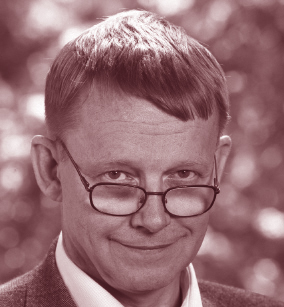Asia is changing 2-3 times as fast as Europe ever did
Â

![]() Sex, health and money - these factors feed into the statistics of world health and into the work of Professor Hans Rosling of the Karolinska Institute and the non-profit foundation Gapminder. His presentations about the development of world health are legend and soon to been seen at the European Futurists Conference Lucerne.
Sex, health and money - these factors feed into the statistics of world health and into the work of Professor Hans Rosling of the Karolinska Institute and the non-profit foundation Gapminder. His presentations about the development of world health are legend and soon to been seen at the European Futurists Conference Lucerne.
First of all: Congratulations on winning the Kunskapspriset, the Knowledge Prize of the Swedish National Encyclopedia. Were you surprised to win it and will it change the future path of Gapminder in any way?
Yes, surprised because it is a prize that coveres all fields of knowledge and I am quite focused.
Statistics are � as the word implies � static. What made you come up with a dynamic form in the first place?
Well, the word actually comes from state, info for the state. I started when students in Sweden in early 1990 discussed the world in terms of we and them, and were completely unaware of the considerable changes in social, demography and health indicators that had taken place over the last two decades, especially they did not understand the magnitude of change in Asia.
Your presentations have become legend on the internet. I personally have recommended the TED-performance to many of my friends. What made you come up with this rather unsual approach to comment statistical development more like a horse race than dry data?
Well, lecturing is so absolutely conventionally done, so it does not take much to innovate, and this is how the world has change: Asia is now changing 2-3 times as fast as Europe ever did. Asia is catching up.
Last spring Google bought the Trendalyzer software. The development team has moved to Mountain View. What will the future of Trendalyzer look like?
In the last Zeitgeist conference Sergey Brin (founder of Google) said that the company now starts to look at products more like different features. There are many ways to display animated information, maps and bubbles are but two forms.
This summer you celebrated the "liberation" of UN stastics like a victory. They are now available free of charge. Why is this so important?
Because it will stimulate innovation in their use and it will give access to those outside institutions and afterall it was the taxpayers that payed in the first place so why pay twice? It is also good that the UN stat division has a visonary leader that sets standards for other UN and national agencies.
Gapminder will keep researching the use of new technology for data animations. What can you tell us about that?
Go to Google web search and write the three words "health money sex"Â and you will see us on top with our first GapCast, we try to make videos that show animated statistics in thematic form like weather in TV.
Your a speaker at the European Futurists Conference Lucerne. What can we look forward to hearing from you?
The need for a new mindset and terminology when assessing the different countries in the world. There are no longer a western and a third world, there are 200 countries on a continuum.
Hans Rosling is professor of International Health at Karolinska Institutet and Dr Stockholm, Sweden. He studied statistics and medicine at Uppsala University. Working as doctor in northern Mozambique he discovered a formerly unknown paralytic disease that he named konzo. Through field research in rural Africa his research group traced the causes of konzo to a diet of toxic cassava roots that were badly processed due to hunger and poverty. His research also concerns other links between poverty and health in Africa, Asia and Latin America. He has advised UN and donor agencies, co-founded M�decines sans Frontiers in Sweden and is member of the International Group of the Swedish Academy of Science. At Karolinska Institutet he started university collaborations with Asia, Africa, Middle East and Latin America, and new courses on Global Health. In co-authored a textbook on Global Health in 2006.
He co-founded Gapminder Foundation (www.gapminder.org) with son and daughter-in-law. To promote a fact based world view they developed the Trendalyzer software. It converts time series statistics into moving, interactive and enjoyable graphics and was in 2007 acquired by Google. Gapminder Foundation now spearheads the use of animations to increase use and understanding of social, economic and environmental statistics. Hans Rosling�s award-winning lectures and videos on global trends have been labeled �humorous, yet deadly serious�.
Â
Prof. Hans Rosling, Karolinska Institute and Gapminder
Keynote Speaker �A Fact Based World View�,
Culture and Convention Centre KKL, Lucerne, Switzerland
November 20, 2007; 13.45 h












